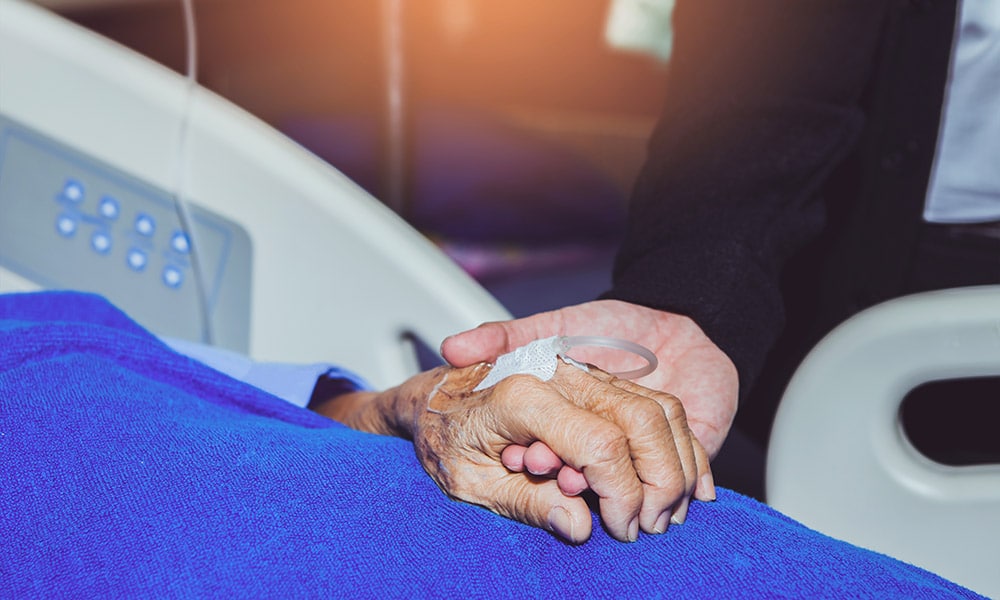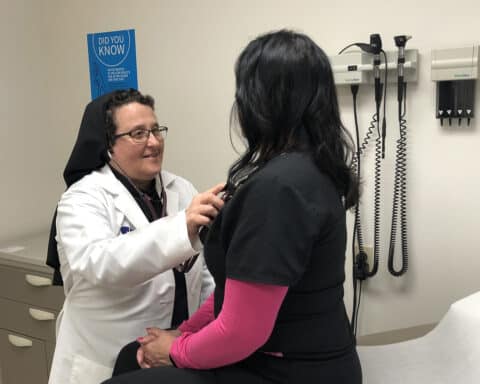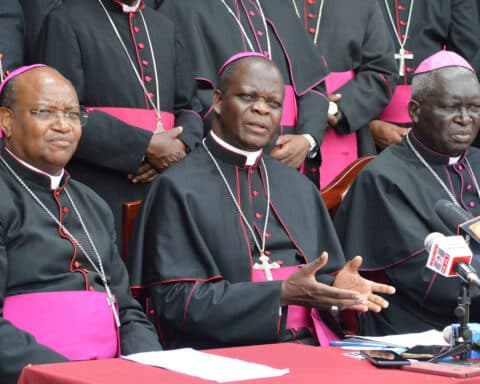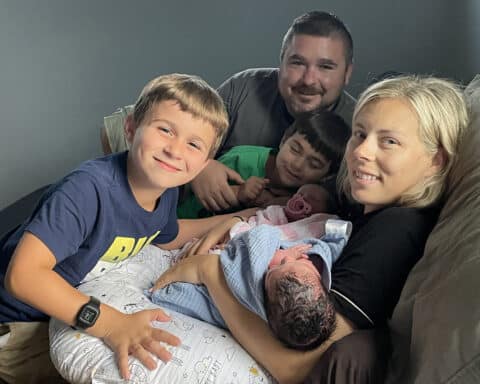
It was one of those things where I brushed it off, but the spouse wouldn’t let it go. “You’re going to the ER,” she announced. “I am not,” I answered. And about a half-hour later I was being immodestly wrapped into a hospital gown and admitted. A definite reminder of what’s down the road. So it goes.
Lent clears it all out for us. Puts things in order. Like going to the hospital.
As late as the 20th century, many hospitals in the United States were places where indigent old men known only to God went to die. Health care took place in the home; if there was no family, there was no care.
Religious orders of sisters established the ministry of health care in so many dioceses, beginning with the Ursulines in New Orleans in the early 18th century. They quite literally gathered those they served off the streets.
For the most part, local governments were uninterested. They often resented the involvement of the sisters, arguing that hospitals for the poor were bad for a city’s image. Local anti-Catholics would complain that the nuns were only in it to steal souls. But to the Church — and to the religious sisters — comforting the sick was a fundamental Christian mission from Christ himself.
As Mike Aquilina wrote in “The Healing Imperative” (Emmaus Road Publishing, $18.95) medicine, physicians, hospitals, nursing and health-care ministry were founded and rooted in the Faith, going back as far as Luke the physician and evangelist.
“It took Christianity,” Aquilina shows, “to create the conditions under which modern medicine could develop, with all its life-saving potential. And that’s because it took Jesus Christ to teach us that all lives are worth saving.”
It was the teaching of Christ as an elementary mission of the Church in the world. Healing is a sign of the Messiah, and it’s offered to all — Jew or Gentile. When he sends out his disciples (cf. Mt 10:1), Jesus tells them to heal even before they proclaim the Kingdom.
The commitment to that mission hasn’t changed. Catholic health ministry is the largest group of nonprofit health-care providers in the nation, with more than 600 hospitals and 1,600 long-term care and other health facilities in all 50 states. Most are rooted in religious orders.
I was in a Lutheran hospital because that is where we live. But they were professional and kind. There was a cross on the wall of my room, and that always helps.
My advice to surviving a hospital stay? Keep your expectations low, try not to sleep all day, understand that they will start trooping in and out around four in the morning, and bring your rosary. Leave the TV off as long as you can — I know more about politics since I went in than I ever needed to know.
I didn’t have the focus to read or write. In fact, this is my first hand at writing since I was liberated. Hope it suits you.
Hope. That’s the gift of faith when you are waiting for the guy to take your blood in the wee small hours.
Jesus said to the crowds: “Come to me, all you who labor and are burdened, and I will give you rest. Take my yoke upon you and learn from me, for I am meek and humble of heart; and you will find rest for yourselves. For my yoke is easy, and my burden light” (Mt 11:28-30).
Have a blessed Lent. Live those traditional practices of prayer, fasting and almsgiving for the whole season. And we will meet in joy at Easter morning.
Robert P. Lockwood writes from Indiana.





